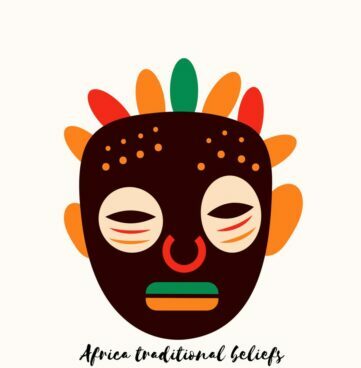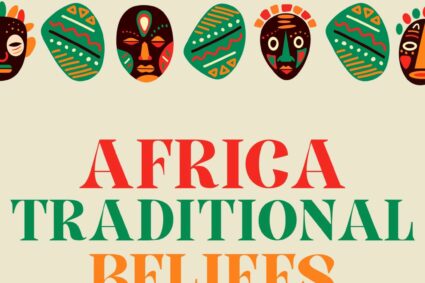
by Antonio Napoli
I received that powerful and cursed book in prison. Against my will, I had found myself involved in a brawl at the market and was arrested as an instigator of disorder.
When you are locked up at night with a stranger, deprived of freedom for who knows what crimes, sleeping is an act of trust in human nature. I wanted to resist sleep, but in the end, I capitulated. In the middle of the night, I woke up with a start and saw the man sitting across from me, staring at me. Exactly in the same position as before.
“Why are you imprisoned here?” he asked me.
“I am innocent.”
“We all are. And we are all liars in search of the truth,” he concluded with a quiet laugh.
Then, with the calm eye of one who fears nothing, he handed me a book.
“Hide it and take it away from here. Tomorrow I will be sentenced to death.”
“And how will I escape?”
“With the help of the book. Read it.”
In disbelief, I asked why he did not use its power himself.
He did not answer. He lay down and slept like a child, or like a man who had made peace with his fate. In the moonlight that penetrated through a high grate, I spent the rest of the night discovering that gift.
The book began with these solemn words: “Oblivion, which stands guard at the tomb of memories, is a severe and intransigent custodian. Those who did not wish to leave this world without first passing on some good have gathered here the formulas to deceive and overcome the power of forgetfulness.”
It was almost dawn when I finished reading.
A river of images poured into my mind: ancestors I had never known, memories that were not mine. The memories I possessed extended beyond the boundaries of my not-so-long past, so much so that I imagined my face had aged as I saw the world through the eyes of those who had preceded me. I called the old guard and, like a lie disguised as truth, when he opened the small carved window in the wooden door of the cell, I returned his own face to him. The jailer, astonished and seduced by the magic, opened the door and let me escape. I turned one last time toward the condemned man. His body was curled up in his fate: I did not dare wake him.
At the sound of my steps in the courtyard, the sentinels turned. With a firm voice, I reminded them of the orders from the previous day and exchanged a few witty remarks: they rejoiced at their commander’s good humor. I asked for a horse and obtained it without too many questions. I understood that memory can extraordinarily transform even our own features.
Behind me, the great river flowed slowly, resounding with all the voices of the drowned dead. That abundance of memories pained me and pushed me to seek refuge in the silent mountain awakening in the light of day.
As I climbed, every path, every shrub, every stone seemed to preexist in my memories before I saw them with my eyes. I was exhausted by the ebb and flow of images. I entrusted my ascent to the eyes of the horse and closed mine to calm the excitement of my spirit.
From the summit, I looked at the city: fires and columns of smoke gushed from the district shaken by yet another revolt. But I no longer knew whether I was observing the present or remembering someone else’s past.
A man with a long beard, wrapped in furs, with bare arms marked by the sun, bowed and hairy legs, stopped my horse.
“Take me with you,” he implored. “I am looking for the river that purifies from guilt.”
He told me how his distant and desperate land had fallen under the fury of invaders. He had lost his family for not heeding a soothsayer’s warning. He had embarked under a false name and had shipwrecked in the great river. In the city, he had killed a man by mistake and had taken refuge in a cave, fleeing from men, spirits, and gods.
I already knew all this.
“Why are you not afraid of me?” I asked him.
“Because you, like me, want to bathe in the distant river of Africa that erases memories.”
I was alarmed and reassured at the same time by that answer.
Beyond the mountain, there were no cities or rivers, only forests dotted with lagoons and arid lands, where it was said every kind of venomous serpent slithered in the shadows. It was impossible to cross that territory on foot, and anyone who ignored the danger would have only one hope of survival: drinking from the waters of an oasis that purified the blood of all poison.
But from the rocky crest above, there was no trace of that oasis river.
“We must find it. I feel it is before us,” asserted that ragged man.
Since I had no memory of that place, it meant that no one had ever been there… or that its existence was only a legend. And yet, the faith of that man penetrated my disbelief, just as his pungent odor increasingly permeated my nostrils every time I turned to tell him not to cling too tightly to my side. The horse did not struggle under the second weight of a man almost skeletal.
The Book of Memory offered me another great advantage: I could recognize the truth in the voices of men. So, when I asked that man to tell me about his homeland, he spoke of amphitheaters and temples filled with orderly crowds, of dawns brimming with birdsong and sunsets whispered by the wind. He spoke of mild laws and gentle customs, of a life that, though brief, was happy. My memories confirmed his words: the truths of that Greek.
We descended the mountain and, after drinking and eating some fruit I had brought with me, we resumed our journey, woven with words. The task of searching for the river together soon turned into an understanding, a friendship we both felt the need for.
At last, we arrived at the threshold of a small yet merciless desert. At the first touch of sand, the horse rebelled and threw us off. We watched it vanish on the horizon, swallowed by the mountain. Around us, only a silence of death. Then, suddenly, snakes emerged from the sand and slithered toward us, swift as a stream filling a freshly dug furrow. We began to run, but they pursued us relentlessly. Meanwhile, fear, mingled with the magic of memory, awakened in me legions of shadows—men who had crossed that hell before us and perished from thirst and poison. Carcasses of animals and scattered skeletons surfaced in my memory even before appearing before my eyes.
The Greek spotted a camel. For a moment, I feared it was a mirage born from my foreign memories, but when I grasped its reins, I knew it was real. We climbed onto its back and, covering its eyes, I urged it forward. The snakes, fearing they would be trampled, recoiled—or at least, that’s what I believed. I had not yet noticed a strange mark on the camel’s forehead.
We proceeded, guided more by the animal’s instinct than our own, and so, unexpectedly, we saw a small oasis rise before us. Around the water pools, other hideous, slithering monsters were drinking, parched by the fever of their insatiable cruelty. They watched us from afar, their eyes burning with rage, as we crossed the last stretch of barren land unharmed.
The arrival of evening, or something else, calmed them and drove them away, while we, our thirst quenched, slowly left behind that hell of sand and perils.
On the horizon, the lights of a city trembled like lost stars in the night.
3 thoughts on “The Book of Memory: Chapter 1”
Comments are closed.

We want more. We want the next chapter
When Antonio sends us the new chapter, we will publish it right away
Now we are waiting for Chapter 2!